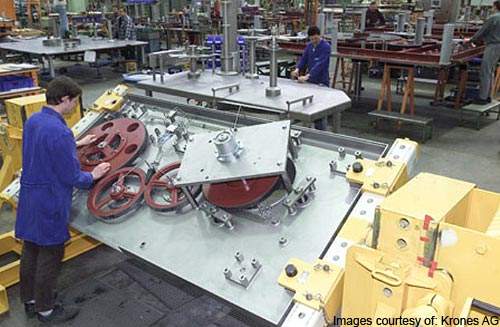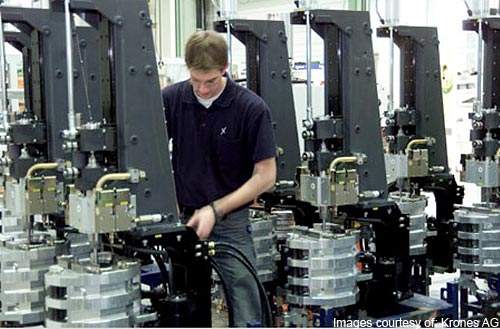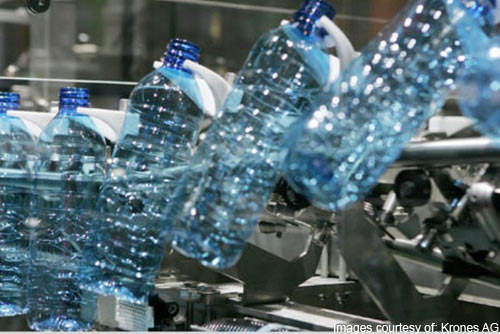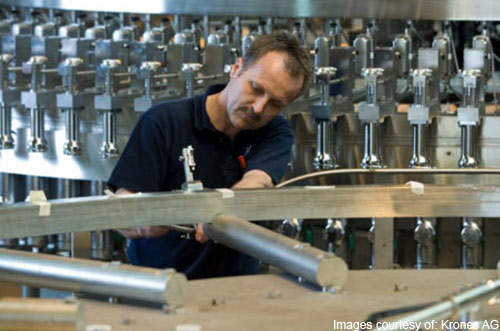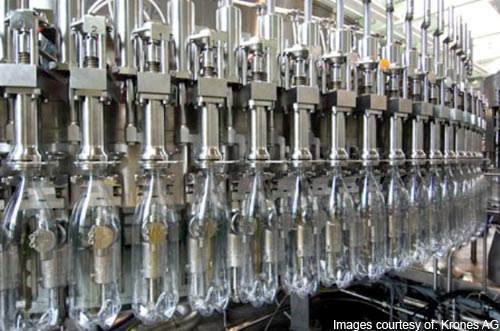In August 2007, German mineral water bottling company Altmühltaler Mineralbrunnen GmbH announced the construction of a new super-scale water bottling facility (‘Vitacqua’ project) on a greenfield site in Breuna, Kassel, Germany. The investment for the new facility was around €100m.
Altmühltaler produces bottled mineral water brands for large German retail chains, hotels and restaurants. The company has several facilities in Treuchtlingen, Central Franconia and Baruth, a small town near Berlin.
Altmuhltaler Mineral Brunnen Project
The project was completed on schedule in September 2007 and the plant came on-stream in November 2007. In December 2007, two additional bottling lines were installed. The plant became fully operational by early March 2008.
The plant is equipped with four bottling lines spread over an optimum layout configuration, which enables easy delivery of raw materials to the lines and for warehousing and dispatch logistics. The plant is capable of completing four million fills a day.
Krones provided the entire process, filling, warehousing and distribution technology for the project. The company was also involved in the higher-order IT landscape. Krones’ technology was chosen due to its efficiency and reduction in energy consumption and product losses.
The project was completed on schedule in September 2007 and the plant came on-stream in November 2007. In December 2007, two additional bottling lines were installed. The plant became fully operational by early March 2008.
The plant is equipped with four bottling lines spread over an optimum layout configuration, which enables easy delivery of raw materials to the lines and for warehousing and dispatch logistics. The plant is capable of completing four million fills a day.
Krones provided the entire process, filling, warehousing and distribution technology for the project.
The company was also involved in the higher-order IT landscape. Krones’ technology was chosen due to its efficiency and reduction in energy consumption and product losses.
The plant includes production and bottling facilities for still and carbonated water products and also soft drinks if required. Krones also supplied filters and the water softening system along with low-pressure compressors and a heating plant.
There are four mixing lines which can supply products to one of the four PET bottling lines installed at the plant. Each bottling line has a Contiform S24 blow moulding machine with a throughput of over 43,200 bottles per hour.
Packing and storage
Krones also supplied the warehousing and distribution systems, including the IT control systems. Following the filling process, bottles are collated into the required format (usually six pack-format) and then shrink-wrapped and fitted with handles using a Variopack machine.
The packs are then stacked on Düsseldorfer half-pallets, which are then packed two to a europallet. The europallets are then taken by a suspended monorail system, which stores the pallets automatically in a high-bay warehouse with around 50,000 slots (enough to store 100,000 Düsseldorfer pallets).
The warehouse is 110m long, 81m wide and 37m high. Raw materials stored in the warehouse are fed automatically to the bottling lines. The loading operations are programmed to ensure that truck turnaround times are only about 35 minutes. This enables prompt and quick deliveries to the discount stores. The warehouse handles about 400 trucks a day through 16 gates and 64 loading tracks.
At the dispatch area pallets of drinks and water are obtained from the automated warehouse and placed on gravity roller conveyors ready for shipping.
Trucks with rear-docking capability can then be loaded by the drivers from the docking area using manual platform stackers. There are no fork-lifts at the facility.
A fleet management system (also by Krones) at the plant notifies drivers when it is their turn to load. Krones’ continual stocktaking technology ensures accuracy of inventory without the need for manual checks. The technology also provides increased system dependability, optimum truck traffic and truck arrangement for loading.

